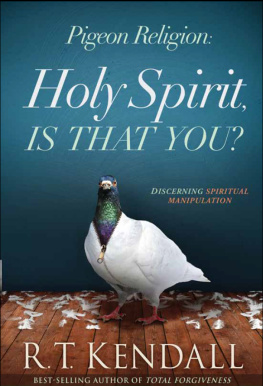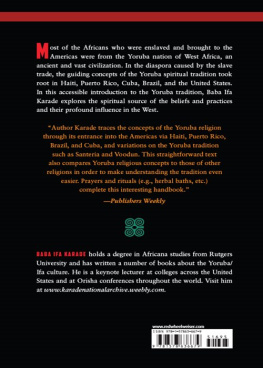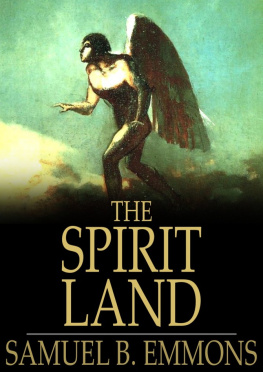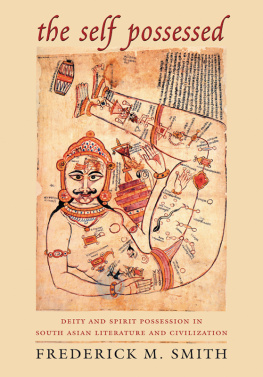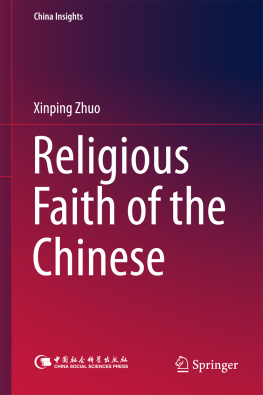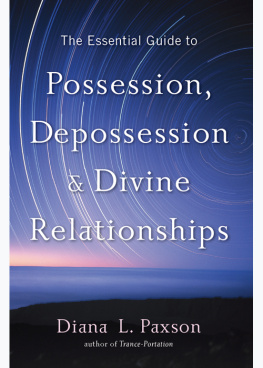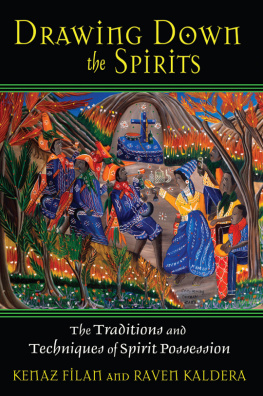Praising His Name
in the Dance
Studies in Latin America and the Caribbean
A series edited by John W. Pulis
Volume 1
Praising His Name in the Dance
Spirit Possession in the Spiritual Baptist Faith
and Orisha Work in Trinidad, West Indies
Kenneth Anthony Lum
This book is part of a series. The publisher will accept continuation orders which may
be cancelled at any time and which provide for automatic billing and shipping of each
title in the series upon publication. Please write for details.
Praising His Name in the Dance
Spirit Possession in the Spiritual
Baptist Faith and Orisha Work
in Trinidad, West Indies
Kenneth Anthony Lum
Copyright 2000 OPA (Overseas Publishers Association) N.V. Published by license under the Harwood Academic Publishers imprint, part of The Gordon and Breach Publishing Group.
All rights reserved.
No part of this book may be reproduced or utilized in any form or by any means, electronic or mechanical, including photocopying and recording, or by any information storage or retrieval system, without permission in writing from the publisher. Printed in Singapore.
Amsteldijk 166
1st Floor
1079 LH Amsterdam
The Netherlands
British Library Cataloguing in Publication Data
Lum, Kenneth A.
Praising his name in the dance : spirit possession in the Spiritual Baptist Faith and Orisha work in Trinidad, West Indies. (Studies in Latin America and the Caribbean ; v.
1 ISSN 1561-2643)
1. Spirit possession Trinidad and Tobago 2. Spiritual Baptists Trinidad and Tobago 3. Orishas Trinidad and Tobago
I. Title
299.670972983
ISBN 90-5702-610-4
To the spiritual people of Trinidad and Tobago
Contents
Tables
Introduction to the Series
It is with great pleasure that I introduce Studies in Latin America and the Caribbean, a new interdisciplinary series. Volumes in this series will provide a forum for anthropological, historical, political, sociological and ecological studies of the peoples, cultures and societies in this diverse and all-important region. The islands that constitute the Caribbean, especially those within the Franco- and Anglophone orbit, have all too frequently been excluded from Latin America. Along with providing a forum, volumes in the series will also engage a variety of theoretical and methodological perspectives, from humanist and constructivist to ethnohistorical, feminist and postmodern, and they will explore the ethnic, cultural and historical links within and between the Caribbean, the Americas, and the larger Atlantic world.
John W. Pulis
Preface
This book is a revised version of my doctoral thesis (Lum, 1989). It comprises ethnographies of two Afro-Caribbean religions in Trinidad, the Spiritual Baptist Faith and Orisha Work, and a comparison and exegesis of the phenomenon of spirit possession as found in the two religions. Some of the devotees of these religions also participate actively in another religion called the Kabalistic Side, in which spirit possession is an integral aspect of worship. I have included a brief account of the Kabalistic Side, and considered it in my analysis of spirit possession.
I have attempted to maintain an epistemological consistency of working from and with first principles, from the choosing and developing of the project, to the fieldwork and the conduct of that fieldwork and to the writing of the thesis and this book. In this regard, discussion and consideration of other theoretical approaches are not necessary. Omitted therefore are other researchers discussions of spirit possession in the two religions. I have, however, included an overview of other researchers discussions of spirit possession in Trinidad in to make the reader aware of this body of work and to give the reader an opportunity to assess my work against it. I have just set this body of previous research aside rather than critique it. In no way am I comparing it with my own research.
I conducted fieldwork in Trinidad from 1986 to 1988, and completed the thesis in 1989. I have not returned to Trinidad since because of personal and employment commitments. I have decided to maintain the integrity of the original data by presenting the ethnographies as they related to the context, including demographics, of the period when I conducted fieldwork (). The subject has never been far from my thoughts since I completed my thesis.
Since 1988 there have been major political, religious and economic developments in Trinidad. The demographics, however, have remained essentially the same, a further reason for my not having to update the ethnographies. Politically, the National Alliance for Reconstruction (N.A.R.) political party, which came to government in a landslide election in 1986, has been removed from office. Its former leader, also the former Prime Minister, Mr A.N.R. Robinson, is the current President of the Republic of Trinidad and Tobago. While in office, Mr Robinson was held captive and wounded in an attempted coup by an Islamic group in 1990. Soon after, the N.A.R. was removed from office in a general election in 1991. The Peoples National Movement (P.N.M.) political party, which had lost the previous election, regained office for one term. The P.N.M. was removed from office in the 1995 general election. The current Prime Minister is Mr Basdeo Panday of the United National Congress party (U.N.C.) that gained government in coalition with the N.A.R. Religious developments include the government scheduling of a Spiritual Baptist public holiday, Liberation Shouter Day (March 30th), and the establishment of a National Park on a major Spiritual Baptist pilgrimage site. Economic developments include the further devaluing of the Trinidad and Tobago currency and the opening up of the Trinidad and Tobago economy to the rest of the world. Between 1986 and 1988 the Trinidad and Tobago economy was closed and there were strict regulations on the transfer of currency in and out of the country.
Since 1988 there has been further anthropological research on the two, indeed, three, religions in Trinidad. Dr James Houk III conducted fieldwork for his doctoral thesis, in particular looking at the transformative processes in Orisha Work, which he refers to as the Orisha Religion, and the Kabalistic Side (Houk, 1992; see also 1993; 1995). Professor Stephen Glazier (1993) has edited a special volume of Caribbean Quarterly, which deals specifically with the Spiritual Baptist Faith, Orisha Work and the Kabalistic Side, among other Afro-Caribbean religions. Professor Maureen Warner-Lewis (1991; 1994; 1995) has researched the Yoruba music and language in Trinidad. Reverend Hazel Gibbs de Peza (1996) has recently conducted research on glossolalia in the Spiritual Baptist Faith.
A note on the term Negro
I have used the term Negro in several places in this book. I am aware of the objections by many Trinidadians of black African descent to this term. These persons prefer the qualifiers black or African when referring to themselves and associated activities such as their religions. I have used these preferred qualifiers where possible. However, I have used the term Negro when citing from government, historical and academic sources which used the term Negro. For ). I have maintained this usage in citing from this census. I offer a similar explanation for my use of the term Coloured in several places.




